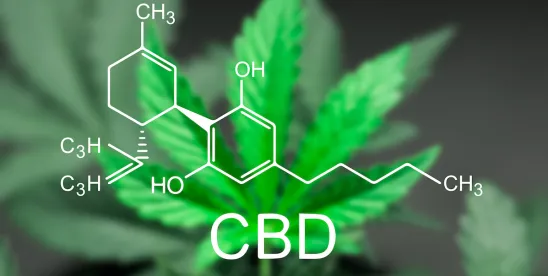You want a safe workplace and have adopted a Drug Free Workplace policy. You may even have government contracts that require you to drug test your employees. How does the brave new world of legalized marijuana, medical marijuana, and CBD products fit in? The answer, like many legal questions, depends. However, in Flannery v. Peco Foods, Inc., the 8th U.S. Circuit Court of Appeals upheld a grant of summary judgment in favor of the employer based on Arkansas’ at-will employment policy.
The Facts
Kelly Flannery used CBD oil for back pain. When his workplace drug screen came back positive for THC, the active ingredient in marijuana, Peco Foods terminated him. Arkansas is an employment at-will state with a few public policy exceptions. Flannery filed a lawsuit attempting to fit within one of those exceptions, but the district court granted summary judgment in favor of the employer.
The 8th Circuit (which covers Arkansas, Iowa, Minnesota, Missouri, Nebraska, North Dakota and South Dakota) upheld the district court’s order. In essence, the court held that Arkansas’ employment at-will doctrine allowed an employer to terminate an employee at any time “for good cause, no cause, or even a morally wrong cause.” Peco Foods’ termination of Flannery for failing the drug test, even if it was because he was using CBD oil, fit squarely within this doctrine.
The 8th Circuit’s decision is fairly narrow. Apparently, Flannery did not raise a timely claim under the Americans with Disabilities Act, and he did not claim his positive drug screen resulted from the use of medical marijuana.
What Does This Mean?
So, can you still test for marijuana and take action if an employee has a positive test?
- Has your state legalized medical marijuana? If so, does the law prohibit adverse employment decisions based on someone’s use of medical marijuana? In Mississippi, although medical marijuana is legal, the law does not prohibit an employer from “disciplining an employee for ingesting medical cannabis in the workplace or for working while under the influence of medical cannabis.”
- Has your state legalized recreational use of marijuana? If so, be sure that taking action based on a positive test does not run afoul of a state law protecting such off-duty use. For example, Minnesota law prohibits an employer from taking action against an employee for off-duty consumption of lawful consumable products, including cannabis flower, cannabis products, lower-potency hemp edibles, and hemp-derived consumer products. In New Jersey, an employer cannot take action based on a positive test for marijuana unless it has evidence that the employee was impaired at work.
- Does your state have a law protecting off duty legal behavior? For example, New York protects off-duty conduct, including lawful use of marijuana products.
In the U.S., 40 states have legalized cannabis for medical use. Twenty-four states have legalized cannabis for recreational use. However, under federal law, cannabis is a Schedule I drug and still illegal.
If you are in a state that has legalized marijuana (either medical or otherwise), check your state statutes. Many laws explicitly permit an employer to prohibit on-duty or on-premises use or being under the influence (kind of like alcohol). Additionally, many laws make clear that an employer can follow government regulations or contracts that require drug testing especially in safety-sensitive jobs.
So, it’s complicated and likely to get more complicated. Don’t make assumptions about what you can and can’t do: Check your state laws.





 />i
/>i

